Prof. Muhammad Hamid Zaman and Dr. Afreen Siddiqi
 Pakistan’s flood of 2010 was the largest in the country’s history. We still haven’t recovered from the incredible destruction of life, property and infrastructure that it left in its wake. No one can argue that if such a calamity were to occur year after year, the existence of the country would be in jeopardy. The economic impact of a 2010 like flood year after year is no different than the long-term consequence of illiteracy in Pakistan!
Pakistan’s flood of 2010 was the largest in the country’s history. We still haven’t recovered from the incredible destruction of life, property and infrastructure that it left in its wake. No one can argue that if such a calamity were to occur year after year, the existence of the country would be in jeopardy. The economic impact of a 2010 like flood year after year is no different than the long-term consequence of illiteracy in Pakistan!
This evaluation and other mind-numbing statistics were made public earlier this week by the Pakistan Education Task Force. You can find the report here. According to the report, ten percent of all the children in the world, who are not in any school, live in Pakistan. This places Pakistan second on the list of “out-of-school” children in the world. The number of children not in school in Pakistan is around seven million, which is roughly the entire population of Lahore. The numbers are even worse for adults, particularly women in rural areas, where less than a third of the female population has ever attended any school.
Our annual spending on education, which should be at least upwards of 4%, has gone down to 1.5% of our GDP. Perhaps a more shocking fact is that this amount is less than the subsidy given to PIA alone.
The report paints a very bleak, but a detailed picture of our future and our very existence as a nation if we do not do anything about fixing this mess. As we read the report (which all of us should do) and think about 2011 as an year of education emergency, we should ask ourselves two questions: why, and how?
The first question is why are we in a state that we are in? Poverty is a good answer to start with, but it not an accurate one. Roughly twenty-six countries that are poorer than Pakistan have a better education system. Perhaps we can blame the politicians, and not all of it will be unjustified. In a society where lawmakers are illiterate and proud of it, the current state of the education system should not be surprising. But the problem is much bigger and far more complex than any one individual factor. We can go for any scapegoat of our liking, or go for the flavor of the week, but the reality is that we all have not done our part in improving the system.
This takes us to our next question, how do we fix it? This is, perhaps, a more interesting yet more difficult of the two questions. We are interested in finding out what you, our readers, think? How should we address this issue?
We need a multi-faceted, integrated and a broad-based approach. An approach that starts with each home, yours and ours, at the grassroots level. At the same time there is a top-down approach, from the federal and local governments. But it sounds easier than it is. We need to pay for this. How are we going to raise a billion dollars per year (as recommended by the task force) to pay for this? Should we introduce new taxes? If we are ready to dig deep into our pockets for floods and earthquakes, why not education?
The issue of accountability and governance is also central to the fix. With nearly a fourth of our nations teachers absent from school every day, we need better accountability. The role of media, both print and electronic, cannot be understated. But we have to remember that they are not charity, and do not operate like one either. We have to come up with innovative ways of making education attractive and the discussion profitable for them. The public pressure on political parties to make education a central and core mission has to be there. The list of things that we can do is long but the time to do them is not.
Great civilizations, including that of the Indus, were lost due to great floods. Lets get to work, lest we lose ours to the flood of illiteracy.
Dr. Zaman is an Assistant Professor at Boston University and Dr. Siddiqi is a research scientist at Massachusetts Institute of Technology.
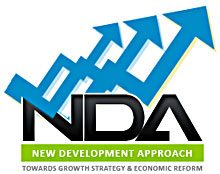 (Editor’s Note: We offer this as sixth in a series on Pakistan’s New Growth Strategy – see here and here and here and here and here. Although not directly related to the growth strategy being devised by the Planning Commission of Pakistan, the issue of education – and the results of the Pakistan Education Task Force are centrally important to that mission. We do hope you will have your say; if we do not speak up, then who will!)
(Editor’s Note: We offer this as sixth in a series on Pakistan’s New Growth Strategy – see here and here and here and here and here. Although not directly related to the growth strategy being devised by the Planning Commission of Pakistan, the issue of education – and the results of the Pakistan Education Task Force are centrally important to that mission. We do hope you will have your say; if we do not speak up, then who will!)


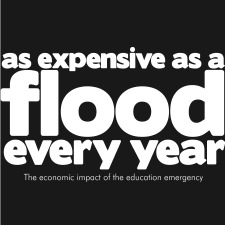

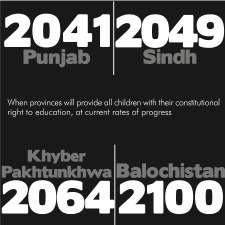
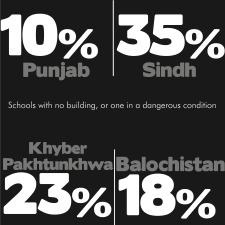
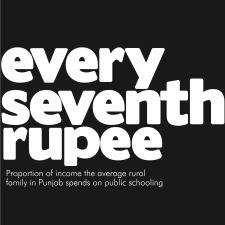
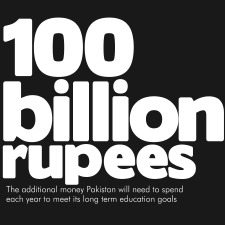
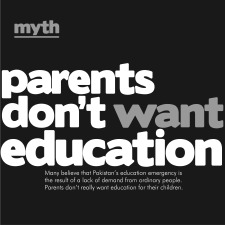
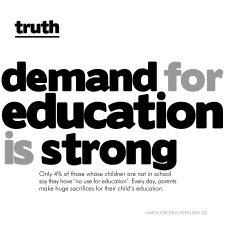

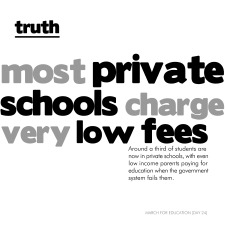
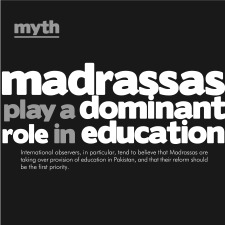
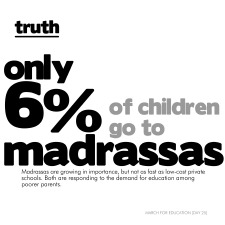

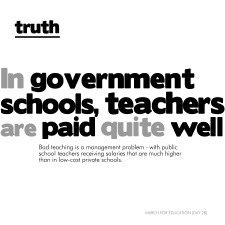



















































Very informative report with statistical data support, I must say and very directive towards the root cause of our problem which is even bigger than the floods at present and ongoing disaster since many years. I am calling it a disaster because of the implications of poor planning so far shared in this article and problems due to negligence in many areas requiring educational development. In my opinion the most important issue that we have to look at is “why are we in a state that we are in?” and ” how to fix it?”. Many of us address to the first need that we need to know why we are in this state and what has cause this decline in educational standards and its provision. Lots of causes and their effects have been discussed about educational emergency in Pakistan and reforms required at grass root till the federal and local government level. I will emphasize on two areas to cope with current situation first is to provide primary education to children specially in rural areas , second to invest in Teacher’s Development and then towards follow up and support (the word accountability seems more political) to help improvement in primary education and Teachers development.
Education is our biggest challenge but until this security situation is tackled nothing will happen